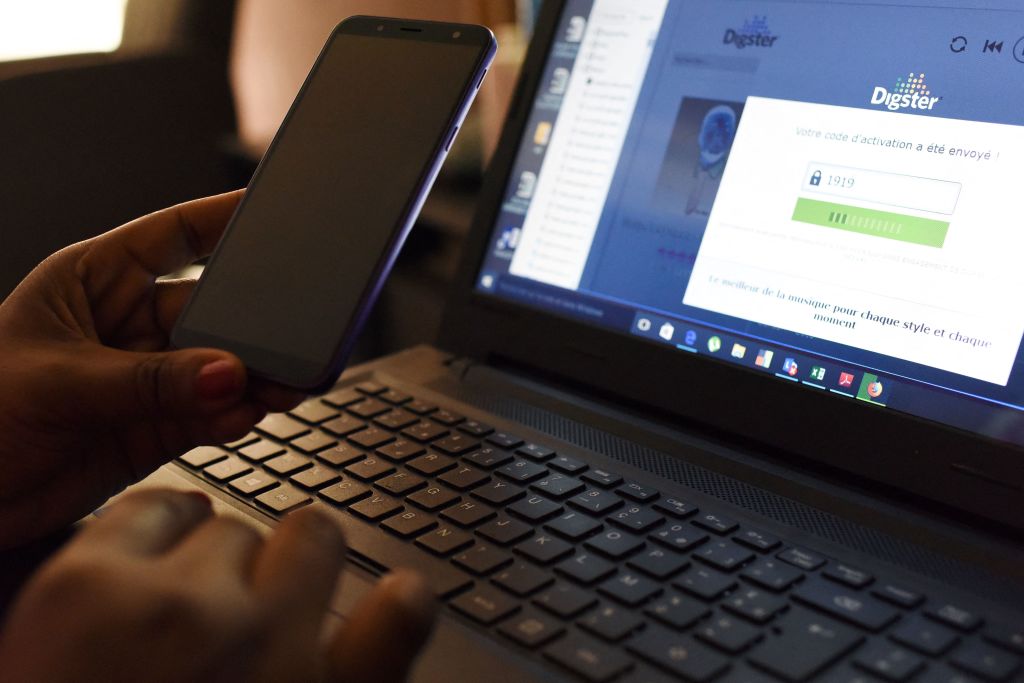ADF STAFF
The COVID-19 pandemic helped to accelerate the growth of digital technology across Africa, but it also led to an explosion of internet-related crime.
The arrests in September of 75 members of Nigeria’s Black Axe criminal organization and other West African gangs shows how pervasive the problem has become. The Interpol operation that uncovered the crimes spanned 14 countries on four continents and led to arrests of members in countries ranging from Ireland to South Africa.
Police seized $1.2 million in stolen funds along with 12,000 mobile phone SIM cards and a variety of luxury items, including expensive cars.
“It is way wider and broader than these 14 countries,” Rory Corcoran, the acting head of Interpol’s new Financial Crime and Anti-Corruption Centre, told The Guardian. “We are dealing with a highly organized international network. These guys are not opportunists … We’re mapping them out around the world.”
All told, Interpol has seized more than $120 million from cyber gangs that have defrauded people around the world using scams such as online dating to make connections.
While gangs are major players in cybercrime, they’re not alone.
In November, Nigerian Ramon Abbas, also known as Ray Hushpuppi, was sentenced to 11 years in a U.S. prison for engaging in years of fraud during which he laundered more than $300 million stolen through internet scams. Abbas lived a lavish lifestyle in Dubai, which he shared with his 2 million Instagram followers.
Internet use has grown rapidly across Africa in recent years thanks to the spread of mobile phone technology. Between 2019 and 2021, more than 13 million Nigerians gained internet access, according to Gallup. In South Africa, two-thirds of the population is now online, up from just over half before the pandemic.
With that growth has come increasing use of social media and online banking, laying the groundwork for cybercriminal activities. People in Africa lose an estimated $3.5 billion a year to online fraud, according to researchers.
There were 10.7 million phishing attacks in the second quarter of 2022 in Africa. Nearly half of them were focused on Kenya’s internet users while another 4.6 million attacks targeted South Africans.
Phishing attacks are designed to trick internet users into giving up personal information, such as passwords and banking information, through emails that appear to be trustworthy.
South Africa has become a base of operations for cyber gangs, whose members acquire citizenship and use that benefit to make criminal inroads in other countries, according to Interpol. Along with Black Axe, a second cyber gang known as the Air Lords is active in South Africa.
Criminal gangs take advantage of the fact that technology growth is outpacing countries’ ability to patrol cyberspace. In some cases, political leaders are more likely to use their nations’ cybercrime laws to attack political rivals than to go after cybercriminals.
“There has to be greater political will and commitment to post cybersecurity to the top of national agendas,” cybersecurity expert Folake Olagunku said during a podcast interview by the group African Union-European Union Digital for Development Hub. Olagunku is principal program officer for internet, cybersecurity and e-applications at ECOWAS, the Economic Community of West African States.
Olagunku said it’s crucial for countries to engage with the private companies that control much of Africa’s internet infrastructure if they hope to get ahead of online criminals.
“We have to be able to engage a broader set of players — not just top down, bottom up to develop more secure cyber environment,” she said. “It’s a good opportunity for the region to make progress.”

